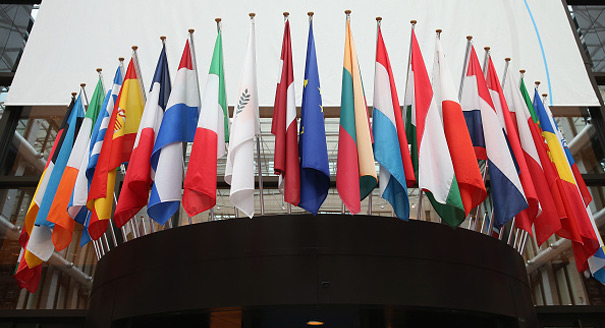In Europe’s multilayered malaise of 2016, there are few things the educated elites of the Old World can agree on. But what almost everyone accepts as fundamentally true is that nationalism is evil, that it is one of Europe’s big weaknesses, and that the current so-called renationalization of EU politics is the root cause of the existential crisis the integration project is facing.
When half-truths turn into mantra, one always needs to be cautious. The wholesale condemnation of nationalism in Europe is both historically understandable and a sign of lazy thinking. It is an indicator of the biggest intellectual weakness of the pro-integration elites: their cluelessness about the positive framing power of the nation.
Yet not every ism is a bad thing, and nationalism—understood as love for one’s nation—also has a profoundly positive side. To grasp the concept’s full meaning, it is helpful to realize that the nation is not an idea that narrows comprehension of and empathy for other human beings, but rather that it is wholly capable of doing the exact opposite. Nationalism can expand the space in which people care for each other. It allows people to feel solidarity with and connections to other humans outside the limiting frameworks of the family, the clan, and the tribe. Nationalism allows people to relate to complete strangers, share their worries, and feel responsible for their well-being. It also allows people to create strong identities that transcend their immediate local surroundings. This is why the nation-state and, indeed, nationalism have been so successful historically.
The scholar who saw this mechanism most clearly and who became famous for spelling it out was Benedict Anderson, an Irish political scientist, erstwhile Marxist, and lifelong anti-imperialist activist. In his classic study Imagined Communities, Anderson made this stunning statement:
In an age when it is so common for progressive, cosmopolitan intellectuals (particularly in Europe?) to insist on the near-pathological character of nationalism, its roots in fear and hatred of the Other, and its affinities with racism, it is useful to remind ourselves that nations inspire love, and often profoundly self-sacrificing love.
Anderson died on December 13, 2015, and with him all understanding of the usefulness of the nation seems to have vanished too. But it is becoming clearer in Europe on a daily basis that an EU built on the negation of the nation will not last. It is true that in a globalized, multifaceted world, Europe’s survival will depend on integration and cooperation at a level that goes beyond the national level. But this integration project will be successful only if it is constructed in a way that leaves the national level intact, instead of trying to render it irrelevant or even destroy it. Europe will be built with and alongside nations, or it will not be built.
For it to succeed, European integration—of which more will be needed if Europeans want to retain stability and current levels of economic well-being—needs to learn a crucial trick from the nation. In much the same way that the power of the nation made people look beyond the blood bonds of family and tribe and elevate solidarity to a higher level, so European integration needs to surpass citizens’ attachment to the nation and raise it by one level. The trick is not to dismiss the lower-level identity and try to make it superfluous. The trick is to leave the nation undamaged and add another layer that can become politically and emotionally meaningful.
This is the core mistake of much well-intentioned intellectual moralizing at the moment. It explicitly or implicitly tries to define as harmful something that people are fundamentally attached to and asks them to abandon it in favor of something that is not yet quite as meaningful and comforting. This is why so much of classic federalist thinking, so much of the ideology of ever-closer union, and so much of the “nationalism is evil” narrative sounds hollow and theoretical to the people of Europe and makes them feel suspicious about the EU.
Instead of dismissing the nation as a thing of the past, Europe needs to learn from it and emulate its ability to create solidarity and the willingness to sacrifice. Rather than focusing just on the abuses and limitations that nationalism can doubtless bring with it, Europe needs to learn the secret of how to lift a feeling of belonging to a higher level.
This has nothing to do with the confusion of national identity and sovereignty that has contaminated the Europe debate in so many countries. The crucial lesson is that national identity can stay intact long after sovereignty has been at least partly shared and traded in for the greater benefit of unified action at a higher level. It has everything to do with creating a sense of European togetherness that is perceived as a useful, comforting, emotionally sound addition to established forms of community at the national and regional levels.
The EU and its Brussels-based institutions will have to change very fundamentally to make this shift possible. It will not be easy, to say the least. But one thing is clear: the changes will have to accommodate the positive power of the nation, or the effort will end in disaster.






